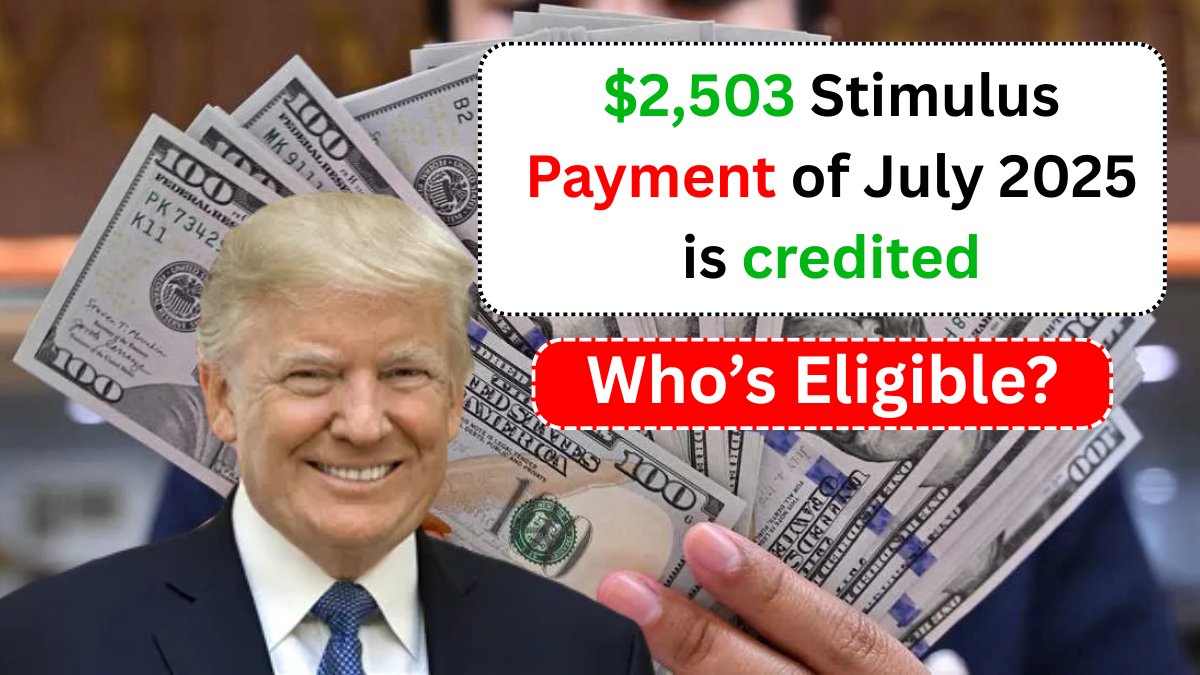Stimulus Payment : Recent online discussions about a substantial $2,503 stimulus payment scheduled for July 2025 have caught the attention of many Indian citizens, particularly those with international connections or working abroad.
While such announcements can be enticing, it’s essential for Indian residents to approach these claims with informed skepticism and understand the broader context of international economic relief programs.
Understanding Stimulus Payment Programs Globally
Stimulus payments gained worldwide prominence during the COVID-19 pandemic when governments implemented direct cash transfers to support their citizens through economic hardship.
Countries like the United States distributed multiple rounds of stimulus checks, while other nations developed their own versions of economic relief programs. These initiatives demonstrated the effectiveness of direct cash transfers in providing immediate financial support during crisis periods.
For Indian citizens, the concept isn’t entirely foreign, as the Indian government has implemented various direct benefit transfer schemes, including emergency cash transfers during the pandemic through programs like the Pradhan Mantri Garib Kalyan Yojana.
However, the scale and amounts discussed in international contexts often differ significantly from domestic Indian programs due to varying economic conditions and cost of living differences.
Evaluating the July 2025 Payment Claims
The specific mention of a $2,503 payment in July 2025 requires careful examination, as legitimate government programs typically undergo extensive legislative processes and public announcements before implementation.
Authentic stimulus programs are usually discussed in official government communications, debated in legislative bodies, and covered extensively by mainstream media outlets with clear eligibility criteria and distribution mechanisms.
Indian citizens should be particularly cautious about claims that don’t specify which government or organization is supposedly distributing these payments.
Legitimate programs always identify the authorizing body, funding source, and specific legal framework under which the payments are being made. The absence of these details often indicates misleading or fraudulent information.
Implications for Indian Citizens and Tax Residents
If legitimate international stimulus programs were to include Indian citizens or residents abroad, there would be significant compliance requirements under Indian law.
The Foreign Exchange Management Act governs how Indian residents can receive foreign funds, and any substantial international payment would need to be reported to Indian tax authorities under the Income Tax Act.
Converting $2,503 to Indian rupees would represent a considerable sum for most Indian families, potentially equivalent to several months of income for many households.
However, receiving such funds could trigger tax obligations, reporting requirements, and questions about the source and legitimacy of the income.
Indian citizens must understand that any foreign income, including government transfers, may be subject to Indian taxation depending on their residency status.
Common Scam Patterns Targeting Indian Citizens
Unfortunately, the promise of large cash payments often serves as bait for sophisticated fraud schemes targeting Indian citizens. These scams frequently exploit people’s financial aspirations and lack of familiarity with international programs.
Common red flags include unsolicited communications claiming eligibility for foreign government payments, requests for personal banking information or upfront fees, and pressure to act quickly without proper verification.
Indian citizens have been particularly targeted by scams claiming eligibility for various international programs, often receiving fraudulent emails or messages that appear official but are designed to steal personal information or money.
The Indian government and banking authorities regularly issue warnings about such schemes, emphasizing that legitimate government programs never require citizens to pay fees to receive benefits.
Legitimate Government Support Available to Indians
Rather than pursuing unverified international payment claims, Indian citizens should focus on legitimate government schemes available to them.
The Indian government operates numerous direct benefit transfer programs, including the Pradhan Mantri Kisan Samman Nidhi for farmers, various scholarship programs for students, and healthcare assistance schemes for different demographics.
The Pradhan Mantri Jan Dhan Yojana has facilitated financial inclusion, making it easier for citizens to access government benefits through formal banking channels.
Additionally, state governments operate their own direct cash transfer programs tailored to local needs and economic conditions. These verified programs provide genuine financial assistance without the risks associated with unverified international schemes.
Digital Literacy and Financial Protection
The proliferation of misleading information about stimulus payments highlights the importance of digital literacy among Indian citizens.
Understanding how to verify information through official government websites, recognizing authentic communication from government agencies, and knowing how to report suspicious activities are crucial skills in today’s digital environment.
Financial institutions in India also play a vital role in protecting customers from fraud. Banks regularly educate customers about common scam patterns and provide secure channels for reporting suspicious activities. Indian citizens should always verify unusual financial communications through official bank channels before taking any action.
Building Financial Security Through Verified Means
Instead of relying on uncertain international payment schemes, Indian citizens can build financial security through established pathways.
This includes participating in government savings schemes like the Public Provident Fund, investing in systematic investment plans, and taking advantage of various government insurance and pension programs designed for long-term financial stability.
$2,503 Stimulus Payment of July 2025 is credited
Education and skill development remain the most reliable paths to financial improvement for Indian citizens.
Government initiatives like Skill India and various digital literacy programs provide opportunities for career advancement and income growth that offer more sustainable benefits than any one-time payment program.
The key to financial security lies in making informed decisions based on verified information, avoiding schemes that seem too good to be true, and focusing on legitimate opportunities for economic advancement available through established Indian institutions and government programs.
